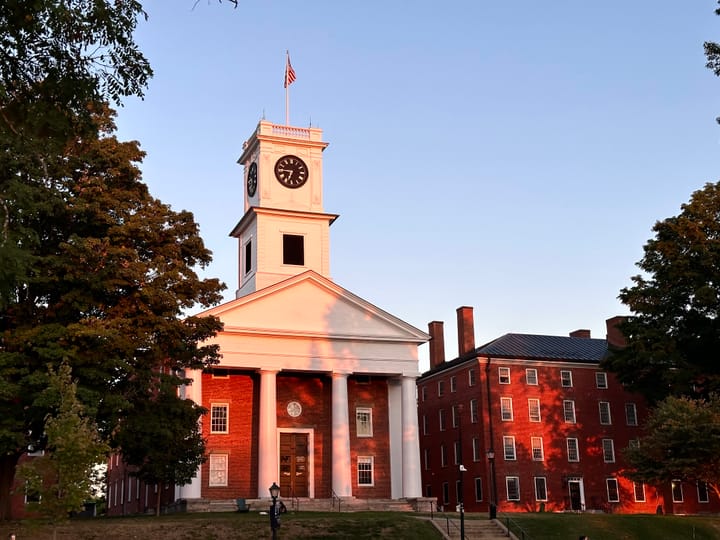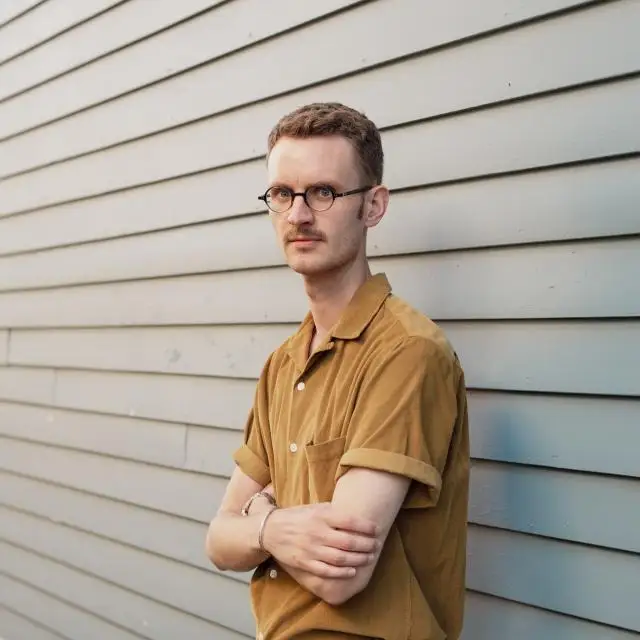Brazilian Students Celebrate Reelection of Former President Lula da Silva
Former President Luiz Inácio Lula da Silva was reelected by the Brazilian people on Oct. 30, ousting incumbent Jair Bolsonaro. Brazilian students on campus celebrated Bolsonaro’s ouster and reflected on what da Silva’s reelection means for the country.
On the night of Oct. 30 in Moore Dormitory’s second floor common room, a group of Brazilian students watched their country’s presidential election coverage live.
As the results came in, Mateus Francisco Luquini Souza ’26 was “overflowing with emotion,” a feeling that he said was shared by his peers.
Former leftist president Luiz Inácio Lula da Silva, commonly referred to as Lula, won 50.9 percent of the vote, defeating far-right incumbent Jair Bolsonaro and marking the first time an incumbent lost reelection in the 34 years of Brazil’s democracy.
Bolsonaro’s presidency was defined by attacks on the left, the media, and democratic institutions. He implemented policies destroying the Amazon rainforest, harming the Indigenous population, and exacerbating the pandemic.
Luquini remembered Bolsonaro’s win in 2018, when he “was filled with an explicable sense of fear.”
“Now, it’s impossible to feel anything but hope … for a reconstruction of Brazilian politics,” he said.
Luquini is one of three first-years from Brazil, who have all added positively to the community on campus, said Giulia Miotto Leal ’24.
Although Luquini said the moment of happiness was quite complicated, studying in the U.S. versus “in the arms of his motherland, where celebrations filled the streets,” he said he was empowered by the unification of the country for the sole purpose of protecting democracy.
Luquini served in the Brazilian Young Parliament and formed connections with Lula’s party as a result.
“In general, I’ve always [worked] to mobilize my community to advocate against fascist fallacies, especially coming from a military school where the teaching of national history is in favor of the Brazilian army and its atrocities,” Luquini said.
Through essays, newspapers, and conversations with family and friends, Luquini said he worked to spread values of diversity and inclusion.
While similarly encouraged by Bolsanaro’s ousting, Giovanna da Silva ’26, another Brazilian first-year, was less enthusiastic about Lula himself.
“I don’t believe in worshiping Lula,” da Silva said. “This was an election of democratic principles. It goes beyond the political spectrum of being left or right.”
Da Silva’s family members make up part of Bolsonaro’s base — they live in the slums or “favelas” of Sao Paulo, in a place enmeshed in poverty with little formal education.
“I was always the inquiring voice in my family,” da Silva said. “Because I wasn’t there to tell my mom ‘this is fake news’ she got informed about absurd things … seeing Bolsonaro as a savior keeping us from a devilish government.”
Da Silva said that she thought many more people would be against Bolsonaro’s ideals, but acknowledged that she was wrong — Lula won by a margin of less than 2 percent.
“It was a very tight win, which means that almost half of Brazil still supports a narrative of violence, discrimination, torture, and destruction,” said Manuela Picq, senior lecturer in political science and sexuality and womens’ and gender studies.
Picq grew up in Brazil and considers herself very connected to feminist and Indigenous movements in the country.
“We live in social media bubbles so we assume other people think the same way as we do,” da Silva added. “We weren’t conscious of how great the split was.”
Miotto Leal was also concerned about how close the election was, which she saw as indicative of a divided country.
Miotto Leal is from Curitiba, and although she has lived in the U.S. for most of her life, she considers herself more Brazilian than American.
“I was very involved in what happened in Brazil because my significant other is also Brazilian,” Miotto Leal said. “It’s a good way for me to be informed about what’s happening on college campuses and to people our age.”
Although her immediate family was pro-Lula, she became aware of the views of her extended family through social media.
“They started posting things on Instagram or Facebook that made it clear they were pro-Bolsonaro,” Miotto Leal said. “We didn’t have outright conversations, but it changed how I view conversations [about politics] with them.”
While social media has added to Brazilian political polarization, Picq said that it could also be a force for good.
After seeing more than 32 million Brazilians abstain from voting in the first round of the presidential runoff, “the global mobilization of artists, and even superheroes on social media made the election lighter and positive,” Picq said.
Besides artists and celebrities vocalizing support for Lula, the U.S. Congress under Biden said they would cut ties with Brazil in the case of a coup, which Bolsonaro threatened.
Picq said that a lot of Bolsonaro supporters care deeply about how the U.S. perceives them and value U.S. resources.
“They all want to go to Miami and shop, right? So for them to lose the support of the U.S. in the case of a coup was very important,” Picq added.
Brazilian politics have been a prominent topic of conversation within the U.S. throughout Bolsonaro’s presidency, particularly more recently, with concerns about a peaceful presidential transition. Though Miotto Leal said Brazil’s negative climate prompted some on-campus conversations, she doesn’t think conversations about Brazilian politics will be common in the future.
“U.S. media is not that South American-focused,” Miotto Leal said. “People are far more likely to let Brazil fade into the background now, especially as elections are over, assuming the transfer of power goes peacefully in January.”
Instead, she assumes that even within the group of Brazilian students at Amherst, conversations will shift more toward the upcoming World Cup and soccer, a common topic among the Brazilian community on campus, as they continue meeting for lunch and speaking in Portuguese.
Picq, who comes to these lunches and facilitates the Brazilian community on campus more broadly, also emphasized that Brazilian students on campus should be vigilant in continuing to follow Brazilian news and making others care, especially about the future of the Amazon rainforest.
“The Brazilian Amazon used to be the ‘lungs of the earth,’ but since last year, the Amazon is not a carbon sink anymore,” Picq said. “It’s a carbon emitter because of the amount of forest fires taking place in Brazil.”
Lula’s win is largely seen as a victory for the environment, after Bolsonaro cut environmental regulations and oversaw an increase in deforestation in the Amazon.
Besides climate change, the way Bolsonaro dealt with the pandemic was immediately concerning to students at Amherst.
Luquini noted that “not everybody survived, not everybody had a chance to see this moment, which was moving.”
This was a reference to Brazil’s approximately 700,000 Covid-related deaths, a rate four times the global average.
“Bolsonaro projected a terrible image of Brazil in these past few years,” Miotto Leal said.
In reference to jokes Bolsonaro made, Miotto Leal added: “To make fun of people dying is really beyond me — there is an utter lack of human regard.”
Picq looks forward to another Lula presidency considering his history of social investments.
“Lula is a president with a record of diminishing poverty, investing in the poor, and raising the minimum income,” Picq said. “The record that I like the most is his expansion of university education in unprecedented ways.”
Picq added that nearly tripling university access from 3 million to around 8 million was “revolutionary in a country marked by slavery.”
“It was the first time that poor, Black people on the periphery could go to university and become judges, lawyers, ministers, and ambassadors, changing the face of Brazil,” she said.
Picq said this was indicative of a movement away from Bolsonaro’s promotion of violence and guns and toward an investment in social policy that “will give people tools to grow and build Latin America.”
Though the U.S. has a similarly fraught political climate and controversial figures like Donald Trump that many compare to Bolsonaro, Miotto Leal said she noticed politics “transforming Brazilian society in a way that it doesn’t transform American society.”
While attending a music festival in Brazil this October, Miotto Leal said it was inspiring to hear a crowd of 5,000 people singing Lula’s campaign song.
“It’s very clear what people think and they’re very open about showing it and expressing it,” Miotto Leal added.
Picq remembered feeling a similar sentiment of political unity at 11 years old, at her first protest in support of Lula, and emphasized that Brazil’s spirit of collective action is something the U.S. can learn from.
“[The] U.S. is a country where there is a lot of individualism,” Picq said. “But there’s a lot of power to be found in working collectively.”





Comments ()